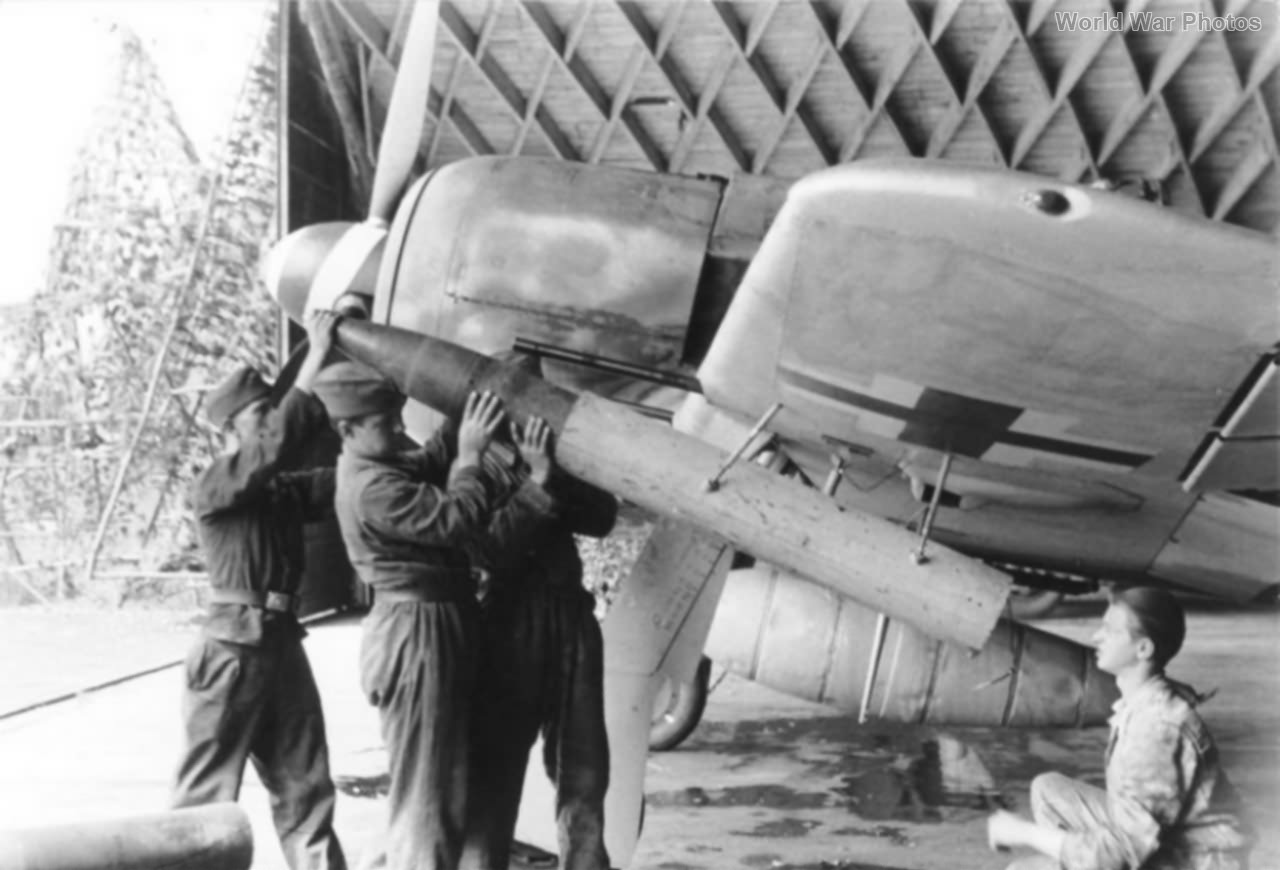The Fw 190 fighter planes were equipped with Werfergranate WGr. 21 cm rocket launchers as an anti-bomber weapon. These were originally infantry rockets modified for aerial use to disrupt enemy bomber formations with their blast effect. By causing disarray in the bomber groups, these mortars diminished the effectiveness of the bombers’ defensive fire.
Each Fw 190 carried one 1.3-meter-long rifled rocket launching tube beneath each wing. The mortars were mounted using a combination of four bracing lugs and a central hook with a suspension bracket. The mortar tubes held 112kg shells, each with a 40kg high-explosive warhead. The shell was secured in place by three retaining springs near the tube’s rear and a screw bolt that prevented it from sliding out.
In case of emergencies, pilots could jettison the entire mortar tube. This was done by triggering an electrically-primed explosive charge that severed the central hook, allowing the tube to fall away from the aircraft.
The firing of the mortars was controlled from within the cockpit. The pilot used an armament panel that contained two switches for the weapon system and a Revi 16B reflector sight to assist with aiming. The shells were launched in pairs, triggered by a button on the control column. Each mortar shell was spin-stabilized for increased accuracy, but the weapon had a limited effective range due to its low velocity.
The shells were fitted with pre-set time fuses, calibrated to detonate at a range of 800 meters. Since this setting was fixed before the weapons were issued to operational units, pilots could not adjust the range once the shells were mounted. For optimal use, the Fw 190 had to aim 60 meters above the target, and for the weapon to be effective, a shell had to detonate within 28 meters of a bomber. The blast from such a detonation was capable of disrupting bomber formations and inflicting damage despite the relatively low velocity of the mortar shells.
